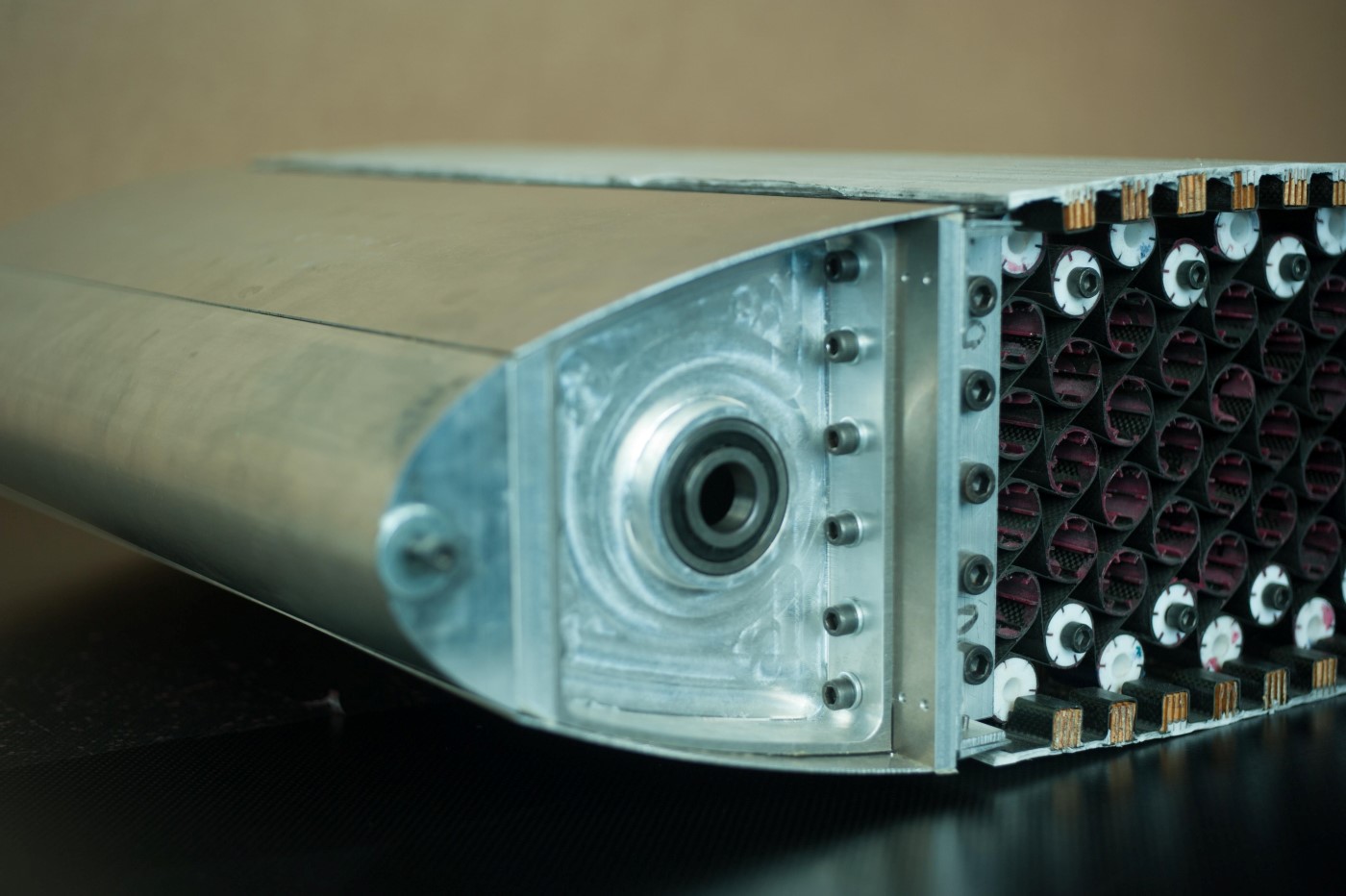AMATECH - Aerospace Materials and Technologies

Ongoing activities
- Smart Material and Structures - development of embedding techniques and production processes for integrating sensors (fiber optics, FBG, chirped FBG) and micro-actuators (shape memory alloys wires and strips, piezo-ceramic plates) into host materials (polymeric composites) to produce aerospace components. Study and development of smart integrated semi-finished products (pre-preg), embedding fibre optics (sensing) and shape memory alloys (actuation). Technologies: heated platen press and autoclave processes, vacuum-assisted resin transfer moulding.
- Health and Usage Monitoring Systems – development of integrated systems for technological monitoring (onset of thermo-elastic stresses during curing process), usage monitoring (load, stress, strain, temperature measurement during components operational life) and health monitoring (onset and growth of damage) of aerospace components. The latter exploiting a strong synergy with accurate numerical investigations of damage onset and propagation, carried out through proprietary explicit routines implemented into a commercial code.
- Morphing and Chiral Structures – numerical modeling, design, production and experimental assessment of composites chiral components. Assembling of complex integrated full-scale structures exploiting passive morphing capabilities, made of composites, metallic, polymeric and elastomeric components. Preliminary design of complex morphing structures exploiting active morphing capabilities, provided by the embedment of shape memory alloys or shape memory polymers. Preliminary design of mechanical testing and wind tunnel aeroelastic testing
- Self-Healing Materials – study, production and assessment of polymeric components made of self-healing polymers (ionomers). Development of integrated components (self-healing multilayer, self-healing sandwich) low, medium and hyper velocity testing. Definition of reference parameters relating projectile dimensions and layer thickness to self-healing capabilities in different (velocity) conditions. Experimental and numerical investigation of healing mechanisms, assessment of possible application (space multilayers, vessels). Compatibility of self-healing materials with space environment (thermal tests, out-gassing tests).
Future plans
- Development of functionally-graded and fully integrated materials, exploring the possibility to develop bio-mimetic materials, i.e. exploiting in the mean time sensing, actuation and self-healing features.
- Development and validation of reliable and affordable technological processes, allowing the production of structures and components suited to real application.
ERC Keywords
- PE8-9 Materials engineering (biomaterials, metals, ceramics, polymers, composites, etc.)
- PE7-4 Systems engineering, sensorics, actorics, automation
- PE5-8 Intelligent materials – self assembled materials
- PE8-1 Aerospace Engineering
Free Keywords
- Multi-functional materials and structures
- Environmental-friendly materials and technologies
Research projects
ERA LEARN EUROSTARS | DIAMANT - Direct sensor Integration by Additive Manufacturing Technology
ASI | GLASS - Waveguides for mulfifunctional Space Systems)
ERA-LEARN | COMETAS - COst-effective enabling MatErials and Technologies for Access to Space
ASI | INNOVATIVE RESEARCH ACTIVITY - Advanced Materials for Space Applications
H2020 | AMATHO - A.dditive MA.nufacturing for T.iltrotor HO.using
MIUR and RL | MACH – Advanced Materials for Neurosurgery
SEVENTH FRAMEWORK PROGRAMME | SARISTU - Smart Intelligent Aircraft Structures
RL | STIMA – Hybrid Structures for Mechanics and Space
MIUR and RL | SMAT – Smart Materials in Aerospace Technologies
MIUR | Structural Health Monitoring of Aerospace Structures
MIUR | Strengthening and development of the motor industry including two-wheelers with low consumption and low environmental impact engines
MIUR | Fully Composite Fuselage for Medium and Large Pressurized Aircraft
MIUR | Nuove tecnologie per le fusoliere pressurizzate di velivoli di medie e grandi dimensioni
Magazine Articles


